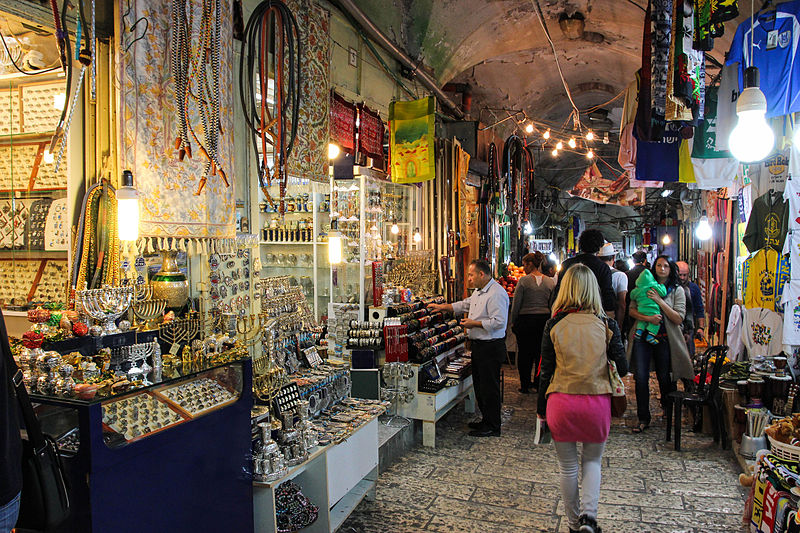There is no doubt that we are living on the edge. Palestinians, Hezbollah, Iran, and no shortage of Europeans and Americans, including some Jews are dreaming of ending the Israeli existence.
But how bad is it?
In recent years, around 20 deaths per annum from terror. And about 300 from road accidents, and fewer road deaths than the US, calculated along with the number of miles driven by motor vehicles. And a rate of murder within the European range, and about one fourth that of the United States.
To be sure, the rate of terror attacks here is lessened by an enormous outlay on security. Israel spends almost twice the percentage of its GNP on its military; a figure that may not include other security services. And it’s further ahead of European countries on military expenditures as a percentage of GNP.
So where are we?
As the country of Jews, we shouldn’t be surprised.
It ain’t perfect. It’s a long way from being satisfactory. But it’s better than it was up to the midst of the last century.
Still worrying are the prospects of Jews elsewhere. Hatred has been carried by migrants from the Muslim Middle East, and has found support among others. Including some Jews who have wandered from their roots.
Such wandering should be expected in modern societies with substantial incidences of secularism. And it is not all harmful.
Part of the Jewish condition is worrying about ourselves. With good reason.
There’s been an uptick in attacks, both in the West Bank and from Gaza.
The recent score is some eight Palestinians killed, and perhaps three Israelis injured.
Along with an exchange of rockets and air attacks with respect to Gaza.
While we’re worrying, we’re also working.
Israel’s economy has, by some measures, climbed above those of the UK, France, Italy, and Japan.
There are good relations with most countries, including Russia, China, and India, along with the US and Europe.
The Jews of Israel have accommodated their instincts for wandering, and formed communities in many countries.
Some of this has been the spirit of finding opportunities. And some is being pushed from Israel by crowding and competition. Along with the individualism and nastiness on the roads and elsewhere.
Along with the worries is the realization that perhaps most Palestinians do not object to Israel’s presence. They live in a third world setting, alongside the first world. Think of Mexicans, not far from California, Arizona, New Mexico, and Texas.
Many of the Palestinians work here. Some of their cities are decent, but with crowded roads. We see the outskirts of Ramallah, only a few kilometers to the north, when driving Route 443 to Modiin.
Blurred are the boundaries between Palestinians and their cousins who are Israeli Arabs. And confusing the difference are the several hundred thousand Arab residents of East Jerusalem.
East Jerusalem Arabs have Israeli IDs, and can therefore travel freely through the country, whether they are citizens or not.
Most pharmacists, and many nurses and physicians working in Israeli institutions are Arabs or the Palestinians of East Jerusalem. It’s tough telling the difference between Arabs and Jews as we walk the streets of French Hill.
But we are careful to do it before dark. We can worry, or overlook the differences.
A neighbor told me about reading Golda Meir’s autobiography, and claiming that nothing’s changed.
A lot has changed, I responded. The countries that had attacked us are now–more or less–our friends. Compared to the 2,500 killed in the 1973 war, annual casualties have been in the range of 20. Egypt and Israel are cooperating in the Sinai. Israel and Saudi Arabia are cooperating. Israel and Jordan have many exchanges, including some criticism of what Israelis do on the Temple Mount.
Russia, India, and China had been antagonistic, but no more.
Arab countries seem to be tiring of Palestinian intransigence, but several of them still cite Palestinian rights when declining to normalize relations with Israel.
Tension remains. Israeli Jews are not swarming to visit Jordan, Egypt, Saudi Arabia, or the Gulf Emirates.
Is Israel’s glass half full, more or less?
A political incident suggests that with some, the glass is less than half full.
When Israel decided to ban the entry of Congressmembers Ilhan Omar and Rashida Tlaib it was headlined as a violation of Israel’s democracy.
But the American democracy, and many others also screen potential incomers. The US has a record of keeping out Communists and other radicals, as well as its massive efforts to keep out Mexican and Central American migrants.
Omar and Tlaib are not the first proponents of BDS kept out of Israel.
After the ban was announced, Tlaib asked permission to enter for the sake of visiting her elderly grandmother, and committed herself to abide by Israel’s restrictions. And then when the permission was granted, she declined to enter, claiming opposition to the restrictions she had earlier accepted.
So the two are minor troublemakers, kept out as the US keeps out of its borders those suspected of being too radical.
Does this make Israel any less of a normal country? Or a country aspiring to a degree of normality alongside the enmity directed at it?
Republished from San Diego Jewish World


























